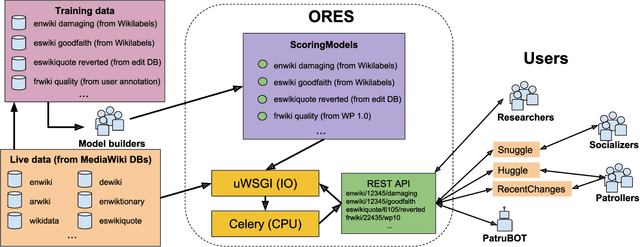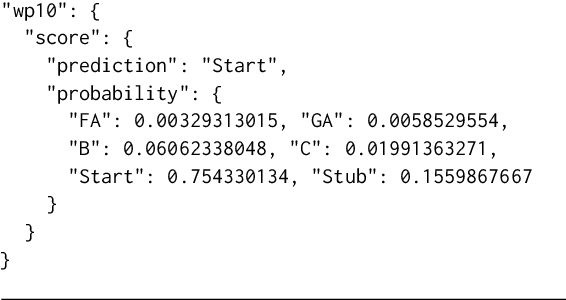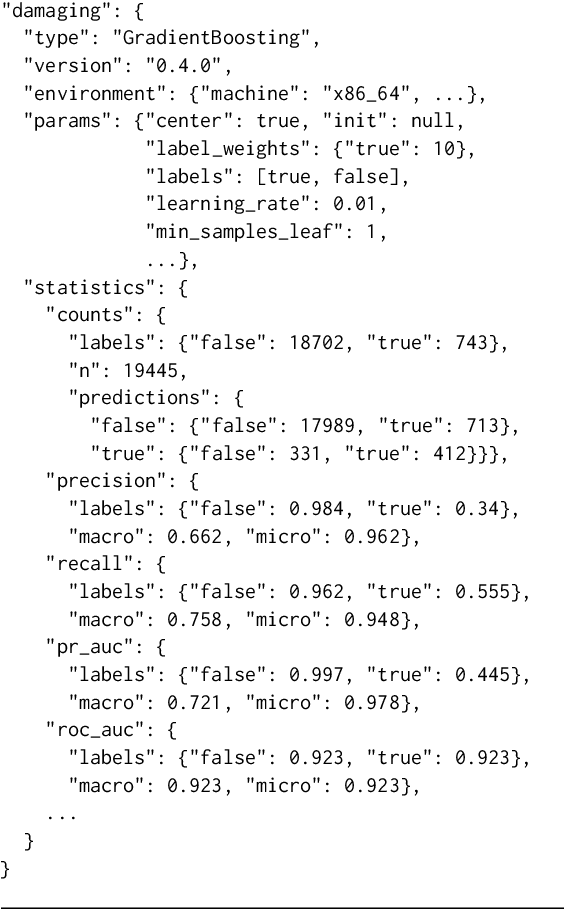ORES: Lowering Barriers with Participatory Machine Learning in Wikipedia
Paper and Code
Sep 13, 2019



Algorithmic systems -- from rule-based bots to machine learning classifiers -- have a long history of supporting the essential work of content moderation and other curation work in peer production projects. From counter-vandalism to task routing, basic machine prediction has allowed open knowledge projects like Wikipedia to scale to the largest encyclopedia in the world, while maintaining quality and consistency. However, conversations about how quality control should work and what role algorithms should play have generally been led by the expert engineers who have the skills and resources to develop and modify these complex algorithmic systems. In this paper, we describe ORES: an algorithmic scoring service that supports real-time scoring of wiki edits using multiple independent classifiers trained on different datasets. ORES decouples several activities that have typically all been performed by engineers: choosing or curating training data, building models to serve predictions, auditing predictions, and developing interfaces or automated agents that act on those predictions. This meta-algorithmic system was designed to open up socio-technical conversations about algorithmic systems in Wikipedia to a broader set of participants. In this paper, we discuss the theoretical mechanisms of social change ORES enables and detail case studies in participatory machine learning around ORES from the 4 years since its deployment.
 Add to Chrome
Add to Chrome Add to Firefox
Add to Firefox Add to Edge
Add to Edge